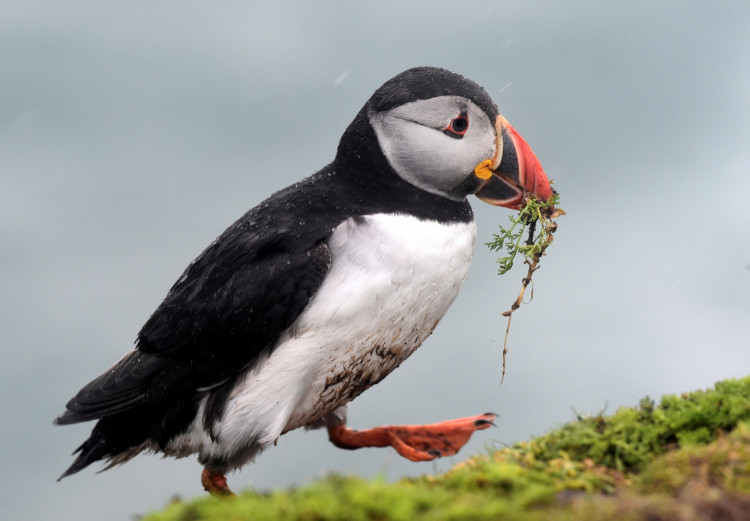Climate change is threatening wildlife ranging from bluebells and bumblebees to snow leopards and emperor penguins, according to a new World Wide Fund for Nature report.
The fund was previously known as the World Wildlife Fund.
The conservation organization is encouraging world leaders to take action at the COP26 climate talks in Glasgow, U.K., in November to limit world temperature rises to 1.5C and reduce the damage to nature and people.
According to the WWF's "Feeling The Heat" report, climate change is warming oceans and landscapes, increasing the frequency of heatwaves, floods, droughts and wildfires and creating conditions that many species can't cope with.
Puffins, mountain hares, bumblebees, and bluebells are already feeling the heat in the U.K., while sea turtles, Amazonian monkeys, frogs, corals, and hippos are all threatened in the world's other regions.
According to the report, the impact of global warming, which has already reached more than 1C beyond pre-industrial levels, can already be seen in the U.K.
Mountain hares in Scotland's Highlands, for example, grow white coats for camouflage in winter, but the snow melts quicker, before their coats return to brown, leaving them vulnerable to predators.
The report also looked into the fate of the Amazon's black-headed squirrel monkey, which lives in a flood plain and might be wiped out by a single large flooding event - the kind that is expected to become more frequent as global warming rises to 1.5C.
Commercial interests around the world might be jeopardized if temperatures rise more than 1.5C, with coffee plantations particularly vulnerable. Approximately 90% of arabica coffee farms in South America might become unsuitable for the crop by 2050
"This isn't a far-off threat - the impacts of climate change are already being felt, and if we don't act now to keep global warming to 1.5°C, we will slide faster and faster toward catastrophe," Mike Barrett, the charity's executive director of science and conservation, said.
Since 1970, global wildlife populations have declined by an average of 68%, and the report asks for action to protect and restore habitats, as well as to transform agricultural and land use.
This will help store carbon, improve wildlife and support communities, thereby addressing both the climate and nature crises, WWF said.






